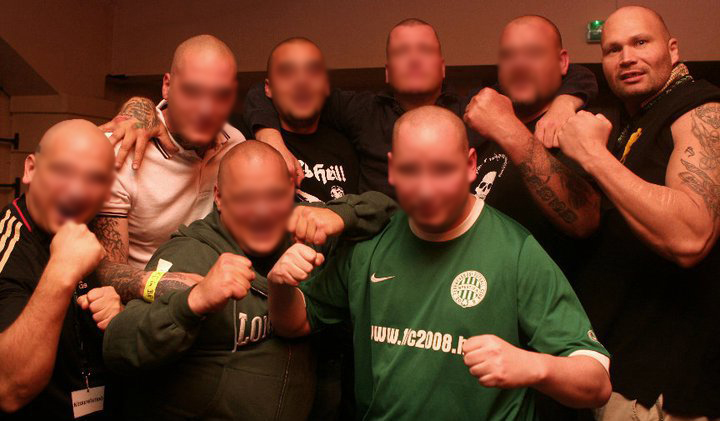The https://english.atlatszo.hu use cookies to track and profile customers such as action tags and pixel tracking on our website to assist our marketing. On our website we use technical, analytical, marketing and preference cookies. These are necessary for our site to work properly and to give us inforamation about how our site is used. See Cookies Policy
An unsporting football conflict
Hungary’s legendary football scene is well past its prime, constantly struggling to return to its former glory days, but to no avail. Nonetheless, football is still the most popular sport in the country, and the handful of clubs which have a substantial supporter base usually also have groups of hardcore ‘ultra-fans’. The reputation of these fans for drifting to the wrong side of the law is a tendency also often true of the clubs’ management. Atlatszo.hu explored the recent history of how relations developed and deteriorated between the management and fans of Hungary’s most popular club, to reveal dubious state spending and colorful criminal records.
Ferencvaros, or Fradi as it is endearingly known, is Hungary’s most popular football club. It has the largest number of supporters and plenty of domestic titles and even some moderately successful outings on the European scene, even if that was many years ago. It is no surprise that the club was among the beneficiaries of Prime Minister Viktor Orban’s unwavering fanaticism for football, with a completely new stadium built for HUF 15 billion (€48 million) as well as a management team littered with people close to the government Fidesz party. The problems emerged when the new stadium hosted games with hardly any spectators. The newly introduced security measures alienated the team’s core fan base, who expressed their objections by boycotting the games. The management and the fans seem to have reached a stalemate in the matter, throwing accusations at each other.

How this came to be can be described in a pretty straightforward way. Hardcore Fradi fans, or ‘ultras’, have often made the news for their racist and anti-Semitic chants and posters, as well as clashing with law enforcement in the streets on the occasions of big matches with rival teams. In the past, the club seemed satisfied to accept any penalties that the fans’ actions evoked from the federation, since their dedication and presence at the games gave FTC matches an atmosphere that was unique to the Hangnail championship.
This came to an end when the supporters went too far and publicly praised the memory of a Nazi war criminal at one of the games, causing a major public upset. Although similar gestures had taken place in the past, this incident raised the threat of Fradi losing its biggest sponsors, which eventually prompted club manager Gabor Kubatov to act. His goal was to replace the supporters altogether, barring the unwanted elements and inviting in a new group of more peaceful spectators who had earlier been put off by the radicalism and often violent acts that came with the presence of the ‘ultras’.
The means to achieving this was the introduction of biometric scanners at the stadium entrance that were to allow entry only to registered and approved visitors. Representatives of the fans were outraged by how the club was treating them, despite their years of support. At the same time, the management had no reason to be happy, because keeping out the hardcore fans did not automatically result in a new lineup of moderate spectators. In fact, turnout at matches has plummeted. The Fradi stadium has capacity for 22 thousand and the average turnout is only 8,500.
The main characters in the story are also interesting figures with a colorful past. Gabor Kubatov rose to national fame as an election strategist. He devised the controversial and arguably illegal voter registries that activists could use to raise election votes, a method that ultimately proved successful. As Fidesz won the national elections in 2010 and again in 2014, it continued to pour monies into the construction of new football stadiums, even though FTC’s example perfectly illustrates that there is very little interest in a championship that delivers such a low quality of game.
The leading figure on the ultras’ side is no lightweight either. When the conflict between the sides escalated, Kubatov told the media that he was receiving constant insults and death threats. Most of these can be traced back to one man, Krisztian Molnar, who has been an ardent FTC supporter since the early 90s. Besides his enthusiasm for the sport, he also happened to be one of the body guards for Bulcsu Szlavy, a well known criminal who was named the “emperor of Balaton” because of his extensive interests around the popular holiday lake and resorts. Szlavy disappeared in 1997, and his dead body was found in 2004 buried underneath a garage. Molnar then went on to serve another criminal leader, Tamas Boros, who similarly came to an unfortunate and premature end when he was murdered in a bombing in 1998.
Molnar made plenty of money from his jobs, which he actively used to support fan groups and organize trips. Over the years he also improved his street cred through repeat prison sentences for assault and drug use.

